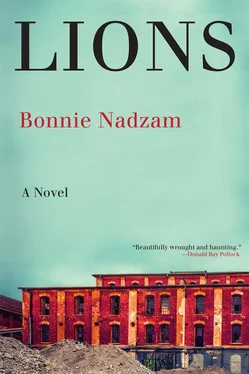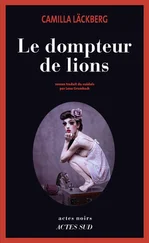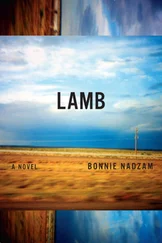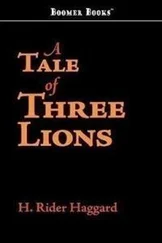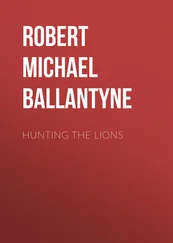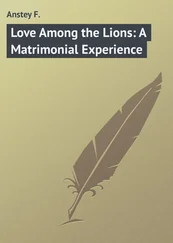“You must be dying here,” he said.
“He’s got you trapped here, doesn’t he?”
“Tell you what, whoever he is, he don’t deserve you.”
“If he knew what you were worth, he wouldn’t leave you alone at an empty building with a guy like me.”
“He ever kiss you?” he asked, and leaned toward her. She raised her hand as if to push him away, then rested her fingertips on his T-shirt. “Like that?”
The kissing went on for some time. She felt drunk. Blindly happy. She bunched his T-shirt in her hand, right there at his chest where she’d set her fingers. He made a laughing sound in his open mouth when she did that. Then he moved his own hand to beneath the hem of her T-shirt, and she pulled back.
“Oh, come on,” he said, leaning back in, pressing the shape of a smile against her mouth.
She pulled back again, then stood up.
“Oh, hell,” he said, getting to his feet. “You don’t play coy very good.” He took the last empty by the neck and swung it flashing in the daylight out into the dirt. “Been inside?”
“All the time.”
“Show me.”
She hesitated.
He took her arm and led her through the open doorway, into the shadow.
“I can’t.”
He stopped and looked back at her. “Are you serious?” His smile faded.
“Sorry,” she said. He dropped her arm.
“Sweetheart. You’ve been playing along all afternoon. Look at me and tell me you don’t want to stay in here with me a little while.”
She stared at the dirt.
“Tell you what,” he said. “My garage is the only viable business in this town for a hundred-mile radius. Any man here who isn’t sweeping you up under his arm and hauling you out to someplace just as pretty as you are, he’s a jackass, plain and simple.”
It embarrassed her for Gordon.
“Tell me you didn’t like that just now,” he said. “Tell me you weren’t thinking about it all morning.”
She said nothing.
“You owe me for two beers,” he said. He put out his hand. She gave him four dollars and he turned and stepped into the daylight.
She walked to the diner for the dinner shift. May was in the doorway looking out at the street. She stepped aside to let her daughter inside. “You stupid, stupid girl.”
Leigh took her apron from the peg on the back of the door and tied it behind her neck and around her waist. May came in and stood right behind Leigh and talked to her back.
“Gordon was here.”
Leigh said nothing.
“I asked him if he wanted sandwiches, if you were going to the factory later tonight. He wouldn’t even look at me Leigh.”
Leigh’s heart started racing. “What does that have to do with me?”
“Please.”
The paint was cracked and chipping away at the dusty chair rail that ran behind the ice bin. Leigh crossed her arms. “You know what? There are some things Gordon just can’t and won’t ever do.”
“You’ve got that right.”
She could hear her mother pulling produce out of the cooler.
“If there’s one thing you should’ve learned from John Walker,” May said, “it’s that you make big decisions the way you make small decisions. And I hope to god you didn’t just do what I think you did.”
“I’m not stupid,” Leigh said, her face hot. She turned around.
“No,” May said, handing Leigh the handwritten specials to put on the chalkboard. “You’re about half stupid. You ought to at least be smart enough to know that you’re not as pretty as men will say you are.”
“Oh, thanks a lot.”
“God, Leigh. It’s not personal.”
“I don’t want to live here forever you know.” She climbed up on the stool with the chalk and list in her fist.
“No one is saying you should.”
Leigh stared at the words of the lunch special without reading them.
“I wish you’d use the stepladder,” May said.
“I’m fine.”
“Erase that real good,” May said.
“I know.”
“Denver’s the same as here. Only bigger. You’d find a restaurant just like ours, twice as big with ten times as many customers and all the same grief.”
“I’m not going to college to wait tables.”
“Oh I see. College is going to open all the doors. Is that what?”
“Maybe I’ll go to California.”
“Now there’s an original idea.”
“Why are you so mean to me?”
“I’m not.”
“What am I supposed to do?”
“Scrub and peel and slice these carrots. Both bags.”
She was to meet Gordon outside the shop at seven-thirty that night, and waited until the light reflected on the empty water tower went from white to gold to rose to black, but he never came. He’d be checking into the North Star by now. She could picture it.
The road he’d follow north from the motel would slowly break up and give way to higher, empty, treeless desert pocked with stones, where he’d come to the house. It’d be peculiarly narrow and high, fashioned of rough-hewn logs with a sharp, pointed metal roof. The beads on the roof would be John’s, or his father’s, or grandfather’s: perfect, straight, clean. In a rough circle around the place, fine gravel, glacial till, fossilized bones of fishes. The windows of the place would always be dark. According to his father’s directions, he was to take the canned food and the wool blanket and books from the trunk, and bring it all to the door, and knock on it. Simple.
On every visit, he’d take the grocery bags and hurry them to the front door to get out of the wind. It would always give him the chills; it would always feel like upon knocking at that door, his life was changing. How must it have been that first time? That was the day he stepped out of her reach, forever. He’d knock, and get no response. It would be a steel-backed white door, the kind John admired for its simplicity and versatility. The kind he had put on the back of the shop two years previous, and Gordon would know instinctively that his father had bought two at once, and drove the other up north in the truck and installed it. Inside, behind that door in the little house, there’d be a red painted iron kettle on a pedestal-mounted woodstove that John would have fashioned himself. There’d be little blue checked curtains, stitched by Georgianna, over a single window. Firewood stacked neatly outside a little back door that John had bucked and split himself.
Gordon would knock again, listening. Nothing. He could have left, then. He’d driven up as he said he would. For months afterward, he must have returned to this moment. He might have turned away with no idea of what service he was refusing, and so never have been troubled by his conscience — only, perhaps, by nagging curiosity. He might have stepped casually from that doorstep through the wind to his father’s truck. There could have been cold beer and road trips, college, girls, rivers and mountains, books, art, music, little successes. . all the things he’d see as if from a great distance in the months to come. There could have been all of those things.
You can say no, his father had told him.
Gordon would knock once more that first visit, and put his ear to the door. He’d touch the doorknob. Cold metal. He’d turn it, and the door would open.
“John? Is that you?” From deep inside the room on the other side of the door, the voice of a young man.
You wanted magic in the world, Leigh thought, but not like that. People didn’t live for a hundred and twenty years. Hundred and fifty. Or if they did, it wasn’t alone in the wide-open country, with no one to help them. Or if they were out there, they weren’t people that young men like Gordon were supposed to tie their lives to.
But of course none of the Walkers would have called their lives, or this task, hard; she could imagine what John Walker would say of it, if she were able to ask him. He’d say that it’d never been a sacrifice, that it hadn’t trapped him in Lions, that he’d never even made a decision about it, that’s what real freedom was.
Читать дальше
